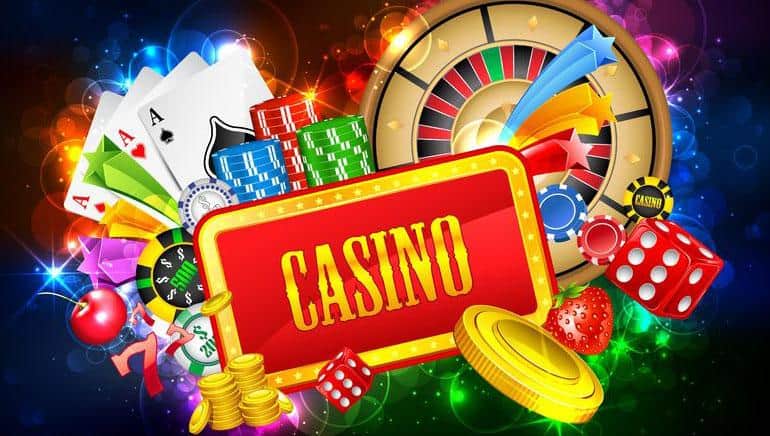Casino gaming has long been a topic of interest and debate, attracting millions of players around the world. SODO88 App With a blend of luck, skill, and the excitement of uncertainty, casino games offer an exciting escape from everyday life. However, as entertainment becomes ever more accessible, it calls for a deeper examination of the morality surrounding these games.
At the heart of the debate lies the question of whether casinos promote responsible gaming or exploit vulnerable individuals. The allure of potential winnings versus the truth of losses can create a challenging dynamic, and understanding this balance is crucial for both players and operators. As we delve into the morals of casino gaming, we will explore the responsibilities of casinos, the effects on society, and the measures that can be taken to foster a healthier gaming environment.
The Impact of Casino Gaming on Society
Casino gaming has a significant influence on the community, affecting not only the economy but also interpersonal dynamics and local frameworks. The funds generated from casinos can lead to job creation and boost local economies, as they provide numerous employment opportunities in different sectors including food and beverage, entertainment, and retail. However, while the financial benefits can be significant, communities often grapple with the possible negative impacts that arise from increased gambling activity. SODO66 App
Additionally, the presence of casinos can lead to an increase in gambling addiction, presenting serious challenges for players and families. The excitement of casino games can quickly evolve into a compulsive habit, affecting connections with others and leading to financial instability. Many individuals may find it difficult with the loss of control over their gambling behaviors, resulting in a need for community support services and interventions to address this growing issue. The social cost of gambling addiction can ripple through kinships and neighborhoods, creating an urgent need for responsible gaming initiatives.
In addition to the economic and social ramifications, casino gaming often showcases cultural attitudes towards risk and entertainment. It can encourage a sense of excitement and leisure, attracting tourists and boosting local travel. However, this allure may also mask the broader implications of gambling as a form of entertainment, provoking ethical questions about its promotion and accessibility. As communities weigh the advantages and disadvantages of casino gaming, the need for responsible practices and regulation becomes increasingly critical in ensuring that the positive aspects are enhanced while minimizing the negative effects.
Ethical Issues in Gambling Activities
The ethics of gambling gaming often revolve around the potential for dependency and its consequences on people and families. Gambling can lead to significant monetary distress, impacting not only the gamblers but also their families. As individuals become caught in the appeal of winning, many lose track of their budget, which can result in devastating outcomes such as bankruptcy. This raises moral questions about the duty of casinos in promoting responsible gambling practices and offering support for those who may be struggling with betting addiction.
Another critical concern is the advertising of betting to vulnerable populations. Casinos often aim at low-income individuals or neighborhoods with the promise of fast gains, which can continue cycles of poverty and despair. In this situation, the ethics of marketing strategies used by gambling establishments come under examination, as they may exploit the desperation of individuals seeking an way out from financial hardships. This exploitation raises ethical questions about the honesty of the gambling industry and its obligation to safeguard its most at-risk patrons.
Additionally, the effect of gambling gaming on society as a entirety cannot be ignored. While some argue that casinos create employment and boost local economies, others point to the community costs associated with problem betting, increased crime rates, and a burden on public services. Balancing financial advantages with the risk for social harm presents a challenging moral dilemma for policymakers and gambling operators alike. The challenge lies in discovering a responsible approach that takes into account the well-being of individuals and communities while still allowing for the enjoyment of casino activities.
Regulatory Structure and Duties
The regulatory structure pertaining to gaming activities is developed to ensure justice, honesty, and player protection. Various government entities and gaming commissions set and apply regulations that dictate how gambling games operate, the standards for game development, and the protocols for processing winnings. These regulations change by jurisdiction but usually involve licensing requirements for providers and strict measures to prevent deception and scams.
In furthermore to governing bodies, gaming businesses bear major accountability in upholding moral standards within their establishments. They must adopt safe gambling practices that promote participant security and awareness, including offering self-exclusion options and sharing information about the dangers related to gambling. Casinos are also responsible for instructing staff to identify signs of problem gaming and understand the appropriate actions to support customers in need.
Moreover, clarity in gaming operations is vital for earning and maintaining public trust. Gaming establishments should provide clear details about the odds of operations, marketing deals, and any associated risks. By fostering an atmosphere of transparency and responsibility, operators can help lessen the likelihood negative impact of betting while improving the overall gaming experience for all participants.

